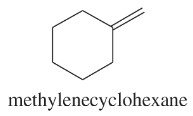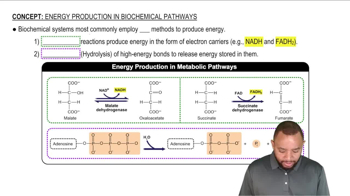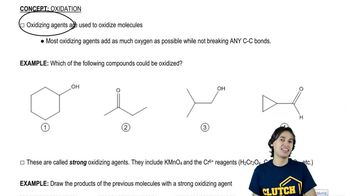Textbook Question
Show how you would convert 2-methylcyclopentanol to the following products. Any of these products may be used as the reactant in any subsequent part of this problem.
d. 1-methylcyclopentanol


 Verified step by step guidance
Verified step by step guidance Verified video answer for a similar problem:
Verified video answer for a similar problem:



 1:35m
1:35mMaster Moving Functionality in Synthesis with a bite sized video explanation from Johnny
Start learning